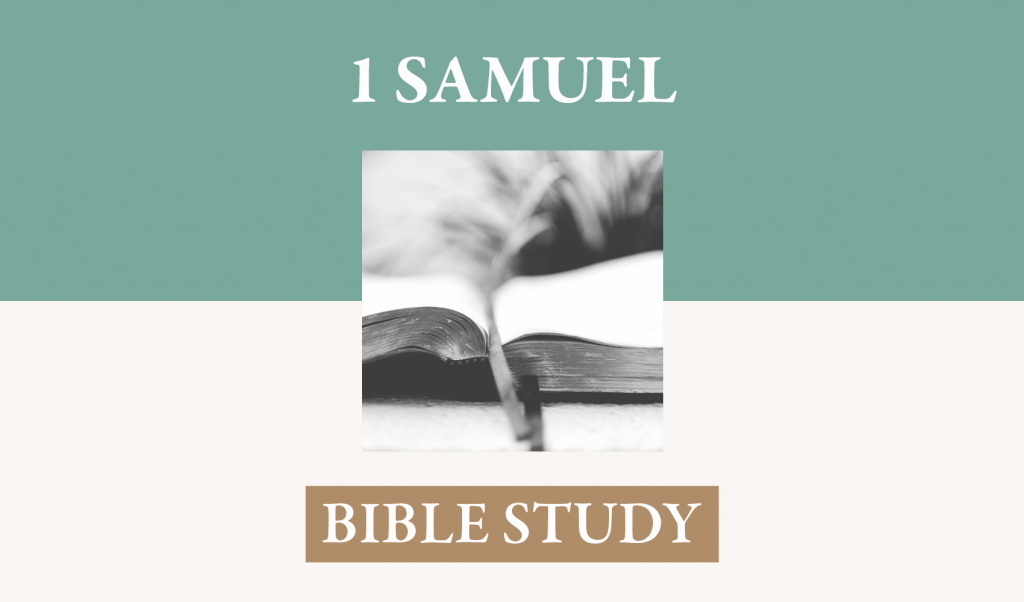I. The Context – Not only was the success of David in his defeat of Goliath monumental, his reason for pursuing the challenge set him apart from virtually all others. His zeal for the glory of the Name of Yahweh (“That all the earth may know that there is a God in
II. The Relationship of Jonathan and David born of Spiritual unity.
A. Jonathan had an immediate perception of the transcendent cause of their unity of soul. This provides an example of the operation of the Spirit of God in the hearts of Old Testament saints.
1. 1 Peter 1:22f (KJV) says that Christians have “purified your souls in obeying the truth through the Spirit unto unfeigned love of the brethren,” and on that basis admonishes them to “love one another with a pure heart fervently.” Verse 23 points specifically to the new birth as the source of this love. The new birth arises from the Holy Spirit [“incorruptible seed”] using the truth of Scripture as a transforming agent.
2. Philippians 2 presents spiritual life in Christ as giving believers, “the same mind, having the same love, being in full accord and of one mind.” The result is that they would “do nothing out of rivalry or conceit, but in humility count others more significant than yourselves.” These marks of a heart of flesh rather than stone, though rarely seen with such power under the old covenant, were present from the beginning in the relationship between David and Jonathan.
B. In his covenant with David, Jonathan conceded to him his heritage.
1. He loved him as his own soul. This certainly is consistent with the commandment that we are to love one’s neighbor as oneself. Jonathan saw nothing in David that provoked jealousy or caution. He was perfectly satisfied for David to receive every honor and advantage that, as the son of the king, he himself had.
2. Jonathan gave to David everything that symbolized his advantages over others. His robe, the mark of his being the king’s son, he surrendered without reservation to David. His weapons, probably still rare in
III. David is given success. This reveals the blessing of God on David and also revealed the utter self-absorption of Saul.
A. David had success in battle. No longer was he an isolated individual doing deeds of greatness, or a shepherd out of his element, but he was a leader of men with such adeptness and skill that Saul “set him over the men of war.”
B. He gained favor with the people and with those who especially attended to Saul. They celebrated with songs that attributed to David greatness beyond that of Saul 18:7. This song become so well-known that even among the inhabitants of
C. Saul’s anger at this rose to such a height that it absorbed virtually the entirety of his life from this point forward. “Saul was David’s enemy continually” (18:29).
IV. The Outworking of Saul’s Anger.
A. Immediately, Saul, filled with both fear and anger, made two attempts to kill David (18:11)
B. Saul put David in harm’s way, hoping that others would kill him.
1. He made him particularly vulnerable as a leader of battles against the Philistines. (18:17).
2. He made the price of his daughter Michal the foreskins of 100 Philistines (18:25). Instead of falling by the hands of the Philistines, David brought twice the bride price. Again Saul’s plot to engineer David’s death resulted in greater accomplishments for David.
3. He sought to get even Jonathan and his servants, who delighted in David’s exploits (18:5), to kill David (19:1). Jonathan warned David of this plot and reasoned with his father about how absurd, irrational, counter intuitive, and godless such a plan was. Saul relented temporarily (19:4-7). The natural man can be led to cease from evil for a season, but in light of an unchanged heart and the domination of the flesh in his affections, even sober reason will be overcome in the pursuit of his godless intentions.
4. Saul did not have eyes to see that the Lord’s favor and protection was upon David. Eventually he came to submit to this truth (24:20-22). Even in spite of this, however, he still made attempts on the life of David. Our sinful propensities overrun our rational understanding, unless checked by powerful operations of the Holy Spirit (Romans 8:12-15)
C. A judicial blindness had come on Saul and God sent a spirit on Saul that would aggravate even further his malice toward David. That initial spirit from God that had empowered Saul for the challenges of the kingship had left and been replaced by a spirit consistent with his spiritual blindness.
1. At the time that the Spirit of the Lord rushed on David “from that day forward,” the “Spirit of the Lord departed from Saul” (16:16). See also 18:10, 12; 19:9, 10.
When “a harmful spirit from God rushed upon Saul,” this was not like the dark side of the force in Star Wars. God is holy, just, wise, good and there is no sin in him, nothing but pure holiness and no shadow due to turning. He controls rebellious spirits to accomplish his own will.
In the case of Job (Job 1:12), Satan was given space for afflicting Job in order that Job would have more profound occasion to witness to his trust in God and also see the remnants of self-righteousness that dwelt in him.
Already, as fallen moral agents, we are “following the prince of he power of the air, the spirit that is now at work in the sons of disobedience” (Ephesians 2:2), and apart from a creative operation of God’s Spirit, “the god of this world has blinded the minds of unbelievers” (2 Corinthians 4:4). In the case of those who do not acknowledge God, he gives them up “to a debased mind to do what ought not to be done,” since they are filled “with all manner of unrighteousness, evil, covetousness, and malice” (Romans 1:28f).
The “evil spirit from the Lord,” therefore, is for Saul a present judgment on his unfaithfulness to clearly revealed truth and a foretaste of torment in the presence of the devil and his angels beyond this life.
2. For what purpose had this been done?
This was a manifestation of the direction of Saul’s heart. Extraordinary gifts for service do not necessarily carry with them the grace of regeneration. So entrenched is our rebellion and corruption, that it will always resurface to dominate if there is no manifestation of irresistible transforming power to give us a new birth.
This taught David to trust in the promise of God and the provisions of God. From these experiences arose some of the most energetic expressions of trust in God that we have in the Psalms (11, 12, 13, 18).
To test David’s patience in submitting to the timing of God in giving him the throne of Israel an his respect for the Lord’s anointed while he still lived until God himself brought Saul to judgment (24:10-15).
To prefigure the rejection and suffering and David’s greater Son, the Messiah, in his humiliation before his enthronement (Psalm 22:21-31; Philippians 2:5-11).
V. A Recognition of fixed enmity and a sad parting of Friends – 20:35-42
A. In pursuit of certain knowledge that Saul’s heart was so inveterately hostile to David that no retreat from his purpose to kill David was possible, Jonathan and David established a test (20:12, 13)
B. It became clear that Saul could not be moved from his purpose of killing David (20:30-33).
C. Jonathan gave David the signal that his test had demonstrated that Saul indeed had not relented in his homicidal hatred of David. (20:35-38)
D. Jonathan kept the word he had given in 20:13-17 and reminded David of their covenant with each other. (42)
1. Jonathan’s desire was for God’s presence with David.
2. He asked that his life be preserved, if indeed he emerged from the outcome of this conflict alive. He did not survive, but died along with his brothers and his father on the same day (31:2, 5, 6).
3. He had asked that his house not be cut off, but preserved.
4. He recognized that, as the chosen of God, God would take vengeance on David’s enemies. It was right that God should protect and bring to prosperity those on whom his favor rested. So will God protect all his chosen ones and bring them finally to glory. This was the confidence of Paul, named after Saul the king of the tribe of Benjamin, when he faced the reality of execution. “The Lord will rescue me from every evil deed and bring me safely into his heavenly kingdom. To him be glory forever and ever. Amen” (2 Timothy 4:18).















